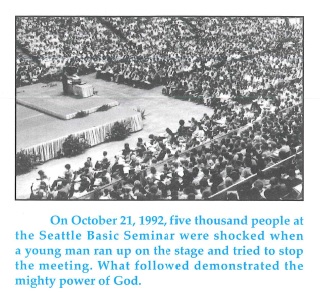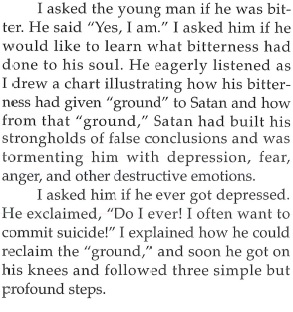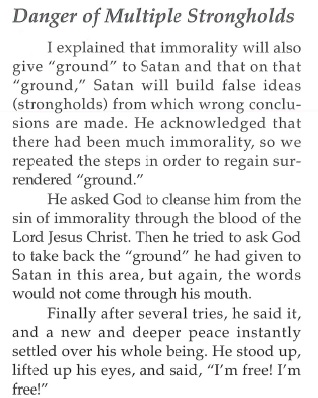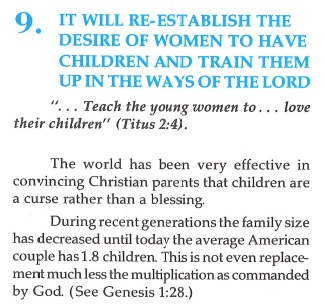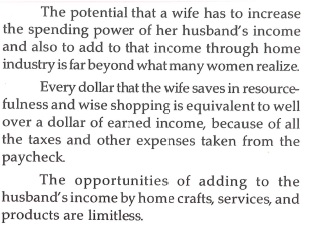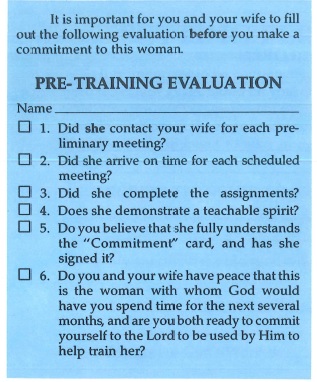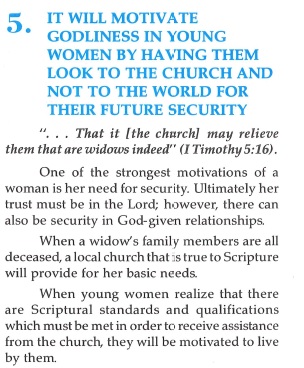Greetings! I haven’t posted as much in the past few weeks because life is getting pretty busy, and probably won’t slow down until…who am I kidding? It won’t ever slow down. But I’m trying to keep to a at-least-once-a-week schedule anyway!
After posting last week’s blog, I kept feeling like I had missed something important. Sure enough, my friend Craig pointed out another problem.
Is there another dangerous unstated insinuation by the testimony that you highlighted?
If this woman’s morning sickness was cured when she repented then, MORNING SICKNESS IS CAUSED BY SIN. If you can figure out what that sin is and repent your morning sickness will depart.
Or if the husband can point out the sin that is causing the morning sickness and get his wife to repent, then he to can “conquer his wife’s morning sickness.”
What a disgusting anti-gospel message.
In other news, Throwing Out the Bath Water was featured on Recovering Grace, which was pretty cool. Recovering Grace also recently linked to a blog post about Gothard’s teachings on giving up rights, which I highly recommend that you read. I had several major “ah-ha!” moments when reading it, and it’s going to take me a while to process through it all.

Today I want to look at a supplemental material that apparently comes from a seminar on church ministry. This book is going to take a little time to get through, because there is so much to be discussed.
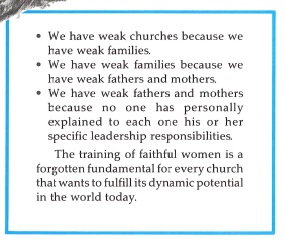
Some of these statements seem rather benign, even if they are a tad simplistic. But I want to take a moment to talk about it, because these few sentences show very clearly how Gothard works, and, to a large extent, answers the question, “how could Gothard manage to dupe so many people?”
He starts with a statement that seems to be undeniably true, yet is extremely over simplified. He also commits a major logical error, arguing that because weak families result in weak churches, any church that is weak must have weak families. Weak families do cause weak churches, but not all weak churches are weak because of weak families. To put it in different terms, termites cause structural damage to a building, but not all structural damage is caused by termites.
The next statement commits the same error, although it’s not quite as egregious, considering how much influence the father and mother have in the family. Nonetheless, there are still things beyond the control of the mother or father that can weaken a family. Illness, employment, abuse by an uncle, a neighbor selling drugs; all of these things can also weaken families. Life is not always as clear cut or straight forward as Gothard would have us believe.
And finally, we get the kicker: all it takes to strengthen families and churches (two excellent goals!) is to have somebody personally explain responsibilities. It’s just that simple. Gothard has the magic ingredient to fix these problems. He has the information for this “forgotten fundamental” for every church.
Now stop for a minute, and put this into normal-people language. Gothard, for all of his talk of “faithful women” and “dynamic potential,” is actually proposing that churches implement a women’s discipleship program. That’s his “forgotten fundamental.” It’s not forgotten at all: there are literally thousands of resources available for these types of ministries, and hundreds of thousands of people involved in these ministries. They’re not new, they’re not unusual, and they’re certainly not “forgotten.”
So why does Gothard try to paint a women’s discipleship program in this light? Simple. He wants to be seen as the only source of wisdom on this topic. He doesn’t want to compete with other writers or speakers who have spoken on the subject. So he wraps it in strange terminology and claims everyone else has “forgotten” about it in the hopes that nobody will go shopping elsewhere.
This is how Gothard dupes people: simplify a problem that people want desperately to fix, and then claim he is the only one who knows how to quickly and easily fix that problem.
Next, Gothard lists ten benefits of training faithful women. Some of them are very interesting. 
Ok, cool. I have no issue with this reason. It’s good for younger women (and younger men and older men and older women too…) to have people they can look up to and emulate. But then we get a list of women in “God’s hall of fame” and it gets a little strange.

Several of these really jump off the page here. Deborah, a woman of discernment? Really? What about leadership? Bravery? Kick-ass-ed-ness? Or Priscilla, a helpmeet? Priscilla was an industrious craftswoman (a tent maker, like Paul) who was an important evangelist and church planter. Priscilla even functioned as a 1st century talent scout, seeing and nurturing the potential in Apollos (someone who Scriptures says “was an eloquent man, competent in the Scriptures.”) All her ministry boils down to “a helpmeet”?
Some of these make sense; Hannah, a woman of prayer, or Esther, a woman of courage. But honestly, this lists seems to cheapen them; it seems to convey that the great works and examples of these women were simply the result of working really hard on one of Gothard’s 49 favorite words. Maybe I’m being too picky here….but it still bothers me.
Reason number 2:

“The danger of…wrong attitudes or behavior of wives” is not clearly stated in Scripture. People are all capable of corrupting doctrinal truth; there is no particular sub-set of people who are more likely than others to corrupt. We do need to be aware of the danger of corruption coming from wives, but also from husbands, and from youth group leaders and song writers and from blacksmiths and computer technicians and U.S congressmen. Particularly singling out wives as a dangerous source of corruption paints them as time-bombs in our churches, rather than people loved by God.
The Scripture quoted here does not support the claim made by Gothard either. Briefly summarized, it tells us that young women should develop the character of Christ in their daily life (which, for those young women in Titus’s church and cultural setting, meant particular things), so that God’s word would not be spoken evil of.

Wow, every single one of them? Man.That’s tough. I wonder if men ever violate truth…
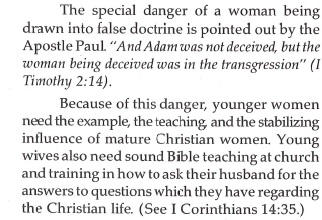
Now I’m confused. We need older women to teach women how to ask their husbands to teach them things? Wouldn’t it be a whole lot more efficient to just have the men teach their wives about this? And since women are so susceptible to doctrinal error, whose crazy idea was it to put them in charge of training other women?
I’m not going to address the quote from 1 Tim. 2, because, bluntly, I’m still very confused by that chapter, and I really don’t think I can speak with any authority on that passage. Perhaps some of my readers would care to share their thoughts?

“When a women pours out her problems to a minister, she exposes him to the strong temptation of becoming inappropriately involved with her in his emotions.” And loving her as a sister in Christ isn’t an option here? Weeping with those who weep isn’t a good idea? Sharing your struggles with someone who is charged with your spiritual welfare should be discouraged? And if a women sharing her problems with her pastor causes him to become “inappropriately involved” with her, is the real problem with her sharing, or with the pastor?
This tendency (that can be seen through IBLP material and at all IBLP sponsored functions) to build walls between the sexes is disturbing for multiple reasons.
- It over-sexualizes all interactions and prevents real, solid friendships and real fellowship from happening. I remember not being allowed to eat at the same table as my sister when doing CharacterFirst! work in Memphis. (There were about 9 of us in the basement of a large church, and we literally sat on opposite ends of the fellowship hall.) Rather than speaking to a person, you find yourself speaking to a gender. It’s institutionalized objectification.
- It divides the body of Christ, and prevents members from loving their brothers and sisters in Christ. (How can I “do good unto…the body of believers” if I am not allowed to even talk to a significant portion of them?)
- Walls that prevent communication serve to protect abusers. If a women is not able to speak to her pastor about an abusive husband, that is one more door that is closed to her. And if we are to take all this talk about ladies speaking only to their husbands about their problems seriously, it does not take much imagination to picture a pastor telling a wife to talk to her husband about these issues!
“When a women seeks regular personal counseling from a pastor, she will usually cause signals of caution or alarm in the pastor’s wife.” Wow, there is so much more wrong with this pastor’s marriage than a counseling session with a church member if the wife is getting signals of caution or alarm! There is an obvious lack of trust and understanding between the couple. At the very least this couple needs to have an open discussion about what they are comfortable with, and what type of boundaries they should put in place to protect their relationship. And if this alarm becomes “seeds of contention” that damage the marriage…well, again, there’s a bigger issue here that is causing the damage. A pastor counseling a church member does not destroy a marriage.
Side note: how insulting is this to pastors? Do we think male pastors (because female pastors are never addressed) are unable to handle a situation like this? If a pastor can’t manage to deal with the temptation of talking to church members about their problems, is this guy qualified to be a pastor? And if this pastor is honestly that weak, will preventing these conversations actually prevent problems at your church? Rather than giving advice on how to “pastor proof” your church, wouldn’t it be far better to put out a booklet titled Kick That Guy Out and Hire A God-Fearing Professional?
Finally, notice who is to blame for broken marriages and sex scandals in the church: women who try to seduce pastors. Those poor pastors! Those poor, passive pastors! Why, they had no more choice in the matter than you or I; these evil women seduced them.
No. This thinking is wrong. It’s disrespectful to women and to pastors. It paints women as the bad guys and men as innocent victims. It erects walls between members of the body of Christ. It excused the sins of pastors who abuse women in counseling.
Final note: Isn’t it interesting how Gothard carried on private counseling sessions with multiple young girls for literally years and yet had the audacity to teach this?
+++++++++++++++++++++++++++++++++++++++
On a personal note, tomorrow is the one year anniversary of the passing of my son. My wife and I would appreciate your prayers.


